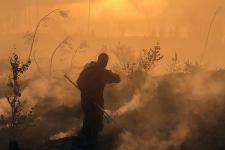A Climate Backlash

The rise of authoritarian populism has disrupted the patterns of party competition in many Western societies. Related to this development, the current debates in the United States and European Union illustrate how empirical science on climate change may become intensely politicized, and all ambitious climate policies challenged in the contemporary political landscape.
In this article, Antto Vihma, Gunilla Reischl and Astrid Nonbo Andersen set out an analytical framework with three ideal types of political strategies for opposing climate policies: climate science denialism, climate policy nationalism, and climate policy conservativism. Empirically, the article investigates populist resistance to ambitious climate change policy in the Nordic context, where countries have sought to assume global leadership in climate politics and have considerable public support for climate action.
In an analysis of the evolving positions of populist parties in Denmark, Finland, and Sweden in recent elections, the article sheds light on the interconnection between populism and climate change policy.
DIIS Eksperter
